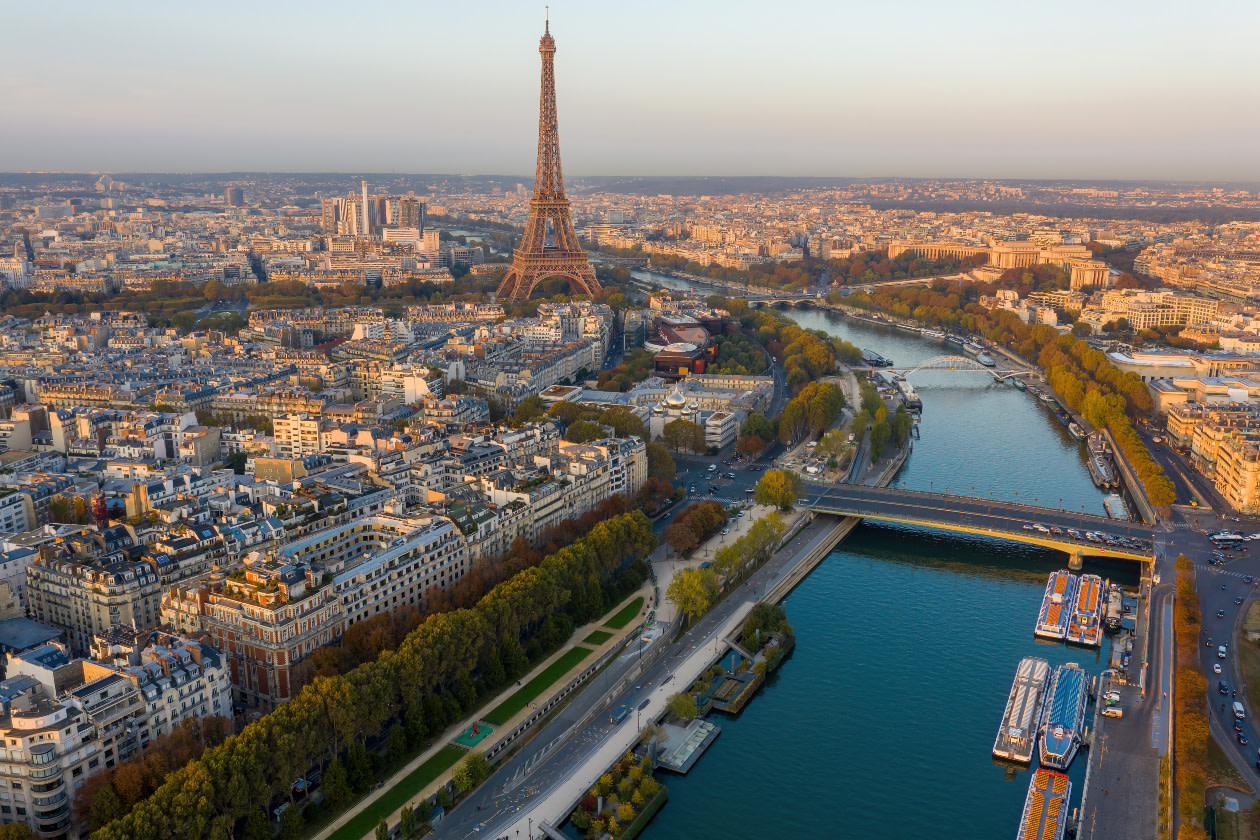Today, we have a dispatch from our Paris bureau chief as the Olympic Games officially begin, and Norway’s prime minister tells our energy correspondent that Brits hoping to copy their EU approach are missing the point.
This is the final Europe Express before our summer break. The past seven months have been a relentless newsfest: thanks for your readership, feedback and tips. Tony Barber will stoically continue to be in your inboxes each Saturday, but Laura and I will be back on August 26th. Enjoy the downtime.
Chariots of fire
President Emmanuel Macron will take a victory lap when he hosts about 100 heads of state and dozens of CEOs including Elon Musk for the opening ceremony of the Paris Olympics today, writes Leila Abboud
The extravagant pageantry will peak tonight with the world’s athletes parading on boats on the Seine to tunes from pop stars including Céline Dion and Lady Gaga, while hundreds of dancers perform atop bridges over the river and on the roofs of landmarks along the way.
Context: The two-week spree of Olympics diplomacy will mark a welcome change for Macron after a tumultuous summer in which he called for shock snap legislative elections, only to lose them and end up with an even more hung parliament than the previous one.
To push off calls from leftists opponents claiming the prime minister’s seat, Macron has called for an “Olympic political truce”, in reference to the historical custom of pausing wars during the competition. Critics have accused him of delaying tactics and denying the results of the election.
But despite Macron’s hope of the Olympics uniting France, the challenges of hosting the event are immense, not least because events are being held inside the city centre at historic monuments, posing major security issues.
Geopolitical tensions are infusing the Games, both on the field and off. Far-left politicians have said Israeli athletes are “not welcome” and should compete under a neutral banner to reflect the deaths Israel has caused in the war against Hamas in Gaza.
The format of the opening ceremony prompted security experts to warn it will be impossible to secure. Four planned terrorist attacks have already been thwarted, according to the interior ministry. Russian disinformation and spying operations have also been detected.
Macron hopes all the fears do not play out.
In a televised interview on Tuesday, he was optimistic: “I am very proud that we are a living democracy, which was able to hold unprecedented elections, and emerges with an unprecedented political landscape. And who will organise a unique Games,” he said.
“That is France.”
Chart du jour: Medal factory
The FT goes inside France’s medal factory as the country aims to end its “period of mediocrity” with top-down approach to developing Olympic champions.
Norwegian wood
Norway’s prime minister has some advice for the new British government as it seeks to repair relations with the EU: look for areas of common interest and work on those first, writes Alice Hancock
Context: Norway is not in the EU but part of the bloc’s single market, which comes with obligations. Britain’s new Labour government has vowed that it will not rejoin the single market but it is seeking better co-operation with the EU on everything from security to veterinary rules.
Jonas Gahr Støre told the Financial Times he was impressed Sir Keir Starmer’s administration had taken a pragmatic approach “to seek solutions, which are good for both Britain and Europe”.
“And I think they can progress because with less turmoil and back and forth, there are obvious areas where there’s a mutual interest to reinforce co-operation,” Støre said.
“Military co-operation is on the agenda and it needs to be on the agenda because Britain is so important for Europe’s capacity,” he said, adding that migration was another issue that needed an inclusive approach.
But Norway is not necessarily a role model for the UK. Despite becoming the EU’s largest supplier of natural gas in the wake of Russia’s full-scale invasion of Ukraine, the Scandinavian country’s relationship with the bloc is not always rosy.
Tensions have risen over Norway’s implementation of the EU’s renewable energy rules. Brussels has accused Oslo of dragging its feet and said that if it does not implement the legislation by mid-August, it will face sanctions.
But Støre played down the strains in the relationship, only saying that Norway would deal with the EU rules “in a responsible way”.
“Some of these decisions have to be carefully studied and adapted to the circumstances,” he said.
This article was written by Henry Foy from The Financial Times and was legally licensed through the DiveMarketplace by Industry Dive. Please direct all licensing questions to legal@industrydive.com.

